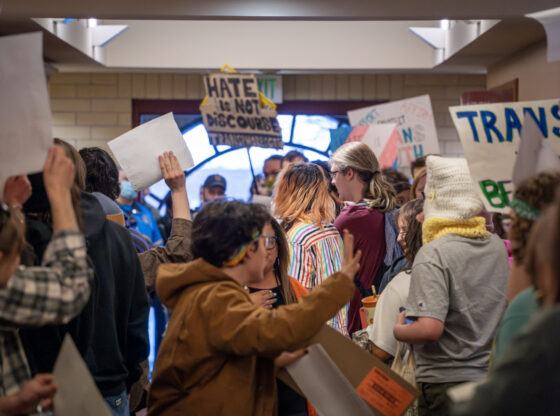After days of silence following the failure of Amazon to bring their HQ2 to New York City, Gov. Andrew M. Cuomo stated during a radio interview with WAMC that the failure of the deal was “the greatest tragedy that I have seen since I have been in government.”
Cuomo and NYC mayor Bill de Blasio argued their case for Amazon along a rather simple economic line: that the building of Amazon’s HQ2 in Long Island City would create new jobs and bring in a gracious amount in future revenue. They stated that although Amazon would receive tax subsidies equalling as much as $3 billion, the 25,000 jobs and $27 billion in revenue the corporation would bring in to Long Island City and NYC as a whole would more than make up for the tax incentives.
Gaining HQ2 would have made considerable work towards de Blasio’s 2017 “New York Works” plan, which seeks to bring 100,000 high-paying jobs to the city, and for many in the city would have signaled a diversification of New York’s economy and a much desired move towards attracting top tech firms. In turn, HQ2 would have signaled that New York is center of modern, digital business.
De Blasio and Cuomo’s plans to attract Amazon, and to position New York as an inviting space for tech companies, at a time where much of the business is centered on the opposite coast, failed miserably in the face of fierce backlash by progressive lawmakers, activists and union leaders who found the deal far less satisfying than the governor and mayor did.
The deal with Amazon cut hard to the core of some of New York City’s—and the country as a whole’s—greatest cultural issues and divisions. The allure of a massively rich corporation, one helmed by a man worth $134.8 billion—with tax incentives—in a city with a crumbling public transportation system, a public housing crisis and some of the worst wealth inequality in the world, struck a heavy chord with varying parties in the New York area.
Using subsidies to attract a business that can easily pay its own way angered an area of New York that has swung decisively left in recent months. Progressive politicians such as Representative Alexandria Ocasio-Cortez, whose upset congressional victory occurred in an area of Queens neighboring where Amazon sought to build, combined with a strong current of pro-union mobilization to effectively scare Amazon away. In a statement detailing their choice to leave the city, Amazon said: “A number of state and local politicians have made it clear that they oppose our presence and will not work with us to build the type of relationships that are required to go forward”
While the governor and mayor, as well as other pro-business interests cast the failure of the deal on the efforts of insurgent progressive politicians, seeking to set an example against corporate interest, the reality rests more squarely on Amazon’s shoulders. Amazon failed in spectacular fashion by failing to move an inch on issues that captivated not only the progressive politicians and their constituents but also the very nature of New York’s identity. Amazon’s inability to allow unionization—in a city with a long history of powerful unions, shows a complete lack of respect for workers’ rights and is a further knock against Amazon’s already perilous workers rights record. Many unions would have supported the deal if Amazon had agreed to allow unionization, but the company refused to budge. Other issues that sprung up were Amazon’s inability to interact with the community, one where increasing gentrification and rising rents are already in the front of people’s minds. Not to mention the fact that the entire deal was far less than transparent, and happened almost entirely behind closed doors.
Amazon’s pullout is nothing more than a show of the corporation’s lack of integrity and ability to deal with divisive opinions and pushback. The fallout from the deal only gained momentum as Amazon ignored the issues pressed against them. One opinion, voiced even by de Blasio after the deal, is that Amazon wasn’t “strong” enough to deal with the very real attitude of the city, which sought community partnership. As de Blasio stated after the pull-out, “We gave Amazon the opportunity to be a good neighbor and do business in the greatest city in the world, instead of working with the community, Amazon threw away that opportunity.”
In a time of increasing wealth inequality, terrible gentrification and eroding worker rights in NYC and nationwide, it seems incredibly irresponsible for a corporation as wealthy and powerful as Amazon to derail a deal because they do not want to tackle with the implications of their business. The loss of the Amazon deal is a win for progressive politics—an ample pushback against corporate interest. In 2019, it is simply laughable that a city should have to beg and offer massive tax breaks to a corporation worth over a trillion dollars just for the pleasure of allowing them to do business in their realm. NYC doesn’t need Amazon, and by dropping the deal, Amazon degraded their already spotty reputation far more than that of the city’s.











